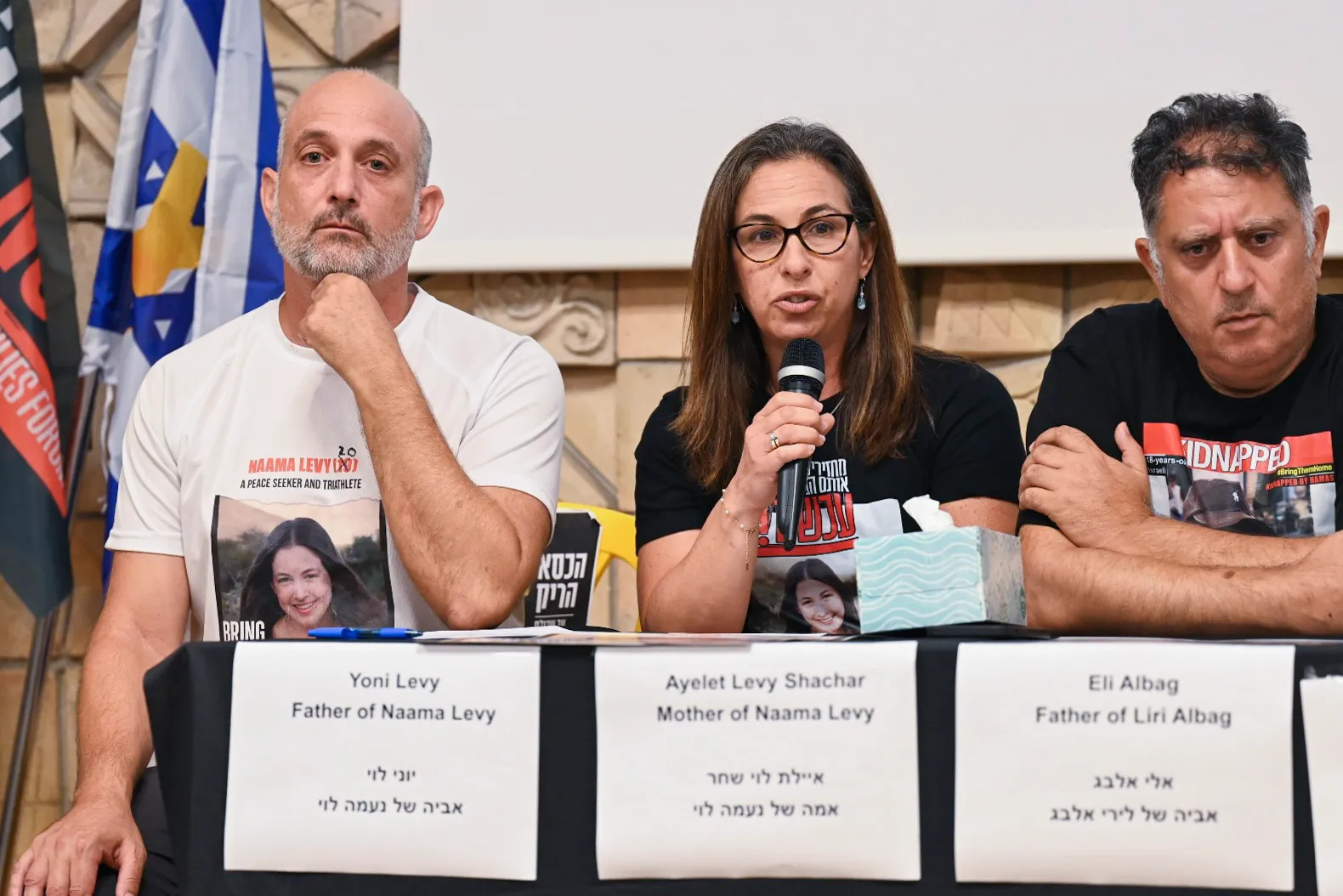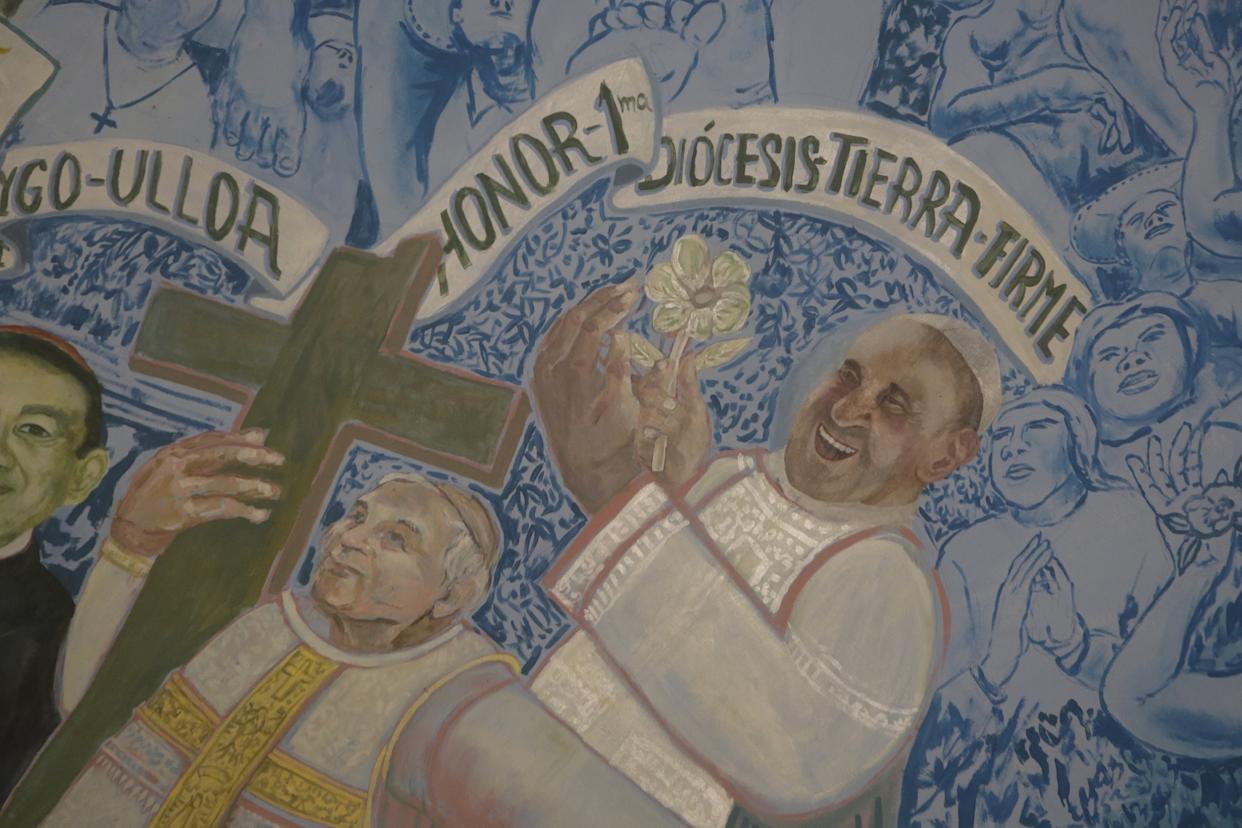International
Hamas committed crimes against humanity in the October 7 assault, according to HRW

Human Rights Watch (HRW) determined that the Islamist organization Hamas committed “numerous war crimes and crimes against humanity” in the attacks in Israel on October 7, in which almost 1,200 people were killed and 251 were taken hostage.
“The Human Rights Watch investigation concluded that the assault led by Hamas on October 7 was designed to kill civilians and take as many people as possible hostages,” said the group’s director of crisis and conflict, Ida Sawyer, in her latest report.
In the report ‘I can’t erase all the blood from my mind: the assault on Palestinian armed groups on October 7 in Israel’, HRW concludes that the Islamists committed several crimes against humanity: targeting civilians, deliberate murder of detainees, cruel and inhumane treatment, sexual and gender-based violence, hostage-taking, mutilation and looting of corpses, use of human shields and looting and looting.
The basic principle of humanitarian law is that all parties to a conflict must distinguish at all times between fighters and civilians, “who should never be the target of an attack,” HRW recalls.
In this sense, HRW stressed that 815 of the 1,195 people killed that day were civilians. And of the 251 kidnapped in the assault – of which 116 are still in Gaza, 42 of them dead – most are civilians.
These actions were not “a late occurrence, a failed plan or isolated acts,” says the organization, which has studied to prepare the report the testimonies of victims, relatives, assistance teams and medical experts, as well as more than 280 photographs and videos of the assault.
“The Hamas authorities responded to HRW’s questions by assuring that they ordered their forces not to attack civilians and not to deviate from human rights and humanitarian law,” says HRW, who claims “to have found evidence to the contrary.”
In the videos of the assault, the militiamen are seen actively looking for civilians and killing them, being proven the intentionality of the attacks and hostage-taking, which was “planned and highly coordinated.”
HRW said it requires further investigation to prove other crimes, such as the prosecution of identifiable groups on racial, ethnic or religious grounds or the commission of rape or other acts of sexual violence.
In this regard, the organization identified crimes on the part of the militiamen such as subjecting the hostages to forced nudity or the dissemination of sexualized images without their consent, but found no verifiable information when talking with the kidnapped, their relatives or witnesses about rapes.
HRW requested access to information about sexual violence from the Government of Israel, which did not attend to it.
HRW highlighted the commission of crimes against humanity by Israel by carrying out a collective punishment against the Gaza population after the attacks, defined by the cut of essential services and the limitation of the entry of humanitarian aid into the Strip, where from October 7 until today more than 38,700 Palestinians have been killed by the military offensive.
This punishment “aggravates the impact of the more than 17 years of illegal closure of Gaza by Israel,” a country that he accused of also committing “crimes of apartheid and persecution against the Palestinians.”
HRW called on all parties to respect humanitarian law, as well as the Palestinian militias in Gaza to “immediately and unconditionally release the civilians they hold hostage.”
“They must take disciplinary measures against members responsible for war crimes and hand over for prosecution anyone who faces an arrest warrant from the International Criminal Court (ICC),” he said.
On May 20, the ICC’s chief prosecutor requested arrest warrants for Israeli Prime Minister Benjamin Netanyahu; his Defense Minister Yoav Gallant and Hamas leaders Yahya Sinwar, Ismail Haniyeh and Mohamed Deif.
Deif was the target of an Israeli attack on Saturday in Mawasi, southern Gaza, without his death being confirmed.
International
DHS Secretary Kristi Noem’s Purse Stolen in D.C. Restaurant Heist

The purse of Kristi Noem, Secretary of the Department of Homeland Security, was stolen on Sunday night at a restaurant in Washington, D.C., Fox News Digital confirmed through several agency sources.
The handbag, taken by a white male wearing a mask, reportedly contained $3,000 in cash along with personal documents, including her passport, keys, driver’s license, and DHS badge, according to an agency spokesperson.
“Her entire family was in town, including her children and grandchildren. She was celebrating her retirement by treating them to dinner, activities, and Easter gifts,” the spokesperson added.
Crime continues to be a significant issue in the U.S. capital, particularly theft. However, violent crime reached its lowest level in 30 years last year, according to the Office of the Attorney General at the time.
International
Pope Francis: The Quiet Architect Behind the U.S.-Cuba Thaw

When then-U.S. President Barack Obama and Cuban President Raúl Castro announced the reestablishment of diplomatic relations in December 2014—after decades of hostility—there was a third figure present in both speeches: Pope Francis.
This thaw in U.S.-Cuba relations—later reversed by Donald Trump—was the result of behind-the-scenes negotiations personally encouraged by Pope Francis, who passed away on Monday at the age of 88, just over a year after becoming head of the Catholic Church.
Upon learning the news of the breakthrough, the pontiff humbly stated, “This was made possible thanks to the ambassadors and to diplomacy,” which he called “a noble, very noble job.”
In 2015, months after the announcement, Raúl Castro visited the Vatican and met with the pope. Over time, Castro developed a fondness for Francis that he never had for his predecessors, Benedict XVI and John Paul II. “If the Pope continues talking like this, sooner or later I’ll start praying again and return to the Catholic Church—and I’m not joking,” said the younger Castro, who, like his brother Fidel (1926–2016), had been educated by Jesuits—the same order to which Pope Francis belonged.
Pope Francis visited Cuba later that year. Just days before his arrival, the Cuban government announced the pardon of 3,522 common prisoners as an act of clemency.
While in Havana, the pope met with Fidel Castro, who gave him a first edition of the book Fidel and Religion by Brazilian friar and liberation theologian Frei Betto.
Criticism from the Opposition
Francis’s diplomatic approach also drew criticism from parts of the Cuban opposition. In a 2022 interview with Univision, the pope revealed he had “a human relationship” with Raúl Castro.
International
Dominican Republic Declares Three Days of Mourning for Pope Francis

Dominican Republic President Luis Abinader has declared three days of national mourning starting Tuesday following the death of Pope Francis, who passed away on Monday at the age of 88 in his residence at the Casa Santa Marta.
In an official decree, Abinader highlighted the pope’s legacy “as a global leader who promoted significant reforms within the Catholic Church and was known for his humility, openness to dialogue, and commitment to peace among nations.”
During the mourning period, the national flag will be flown at half-staff at military facilities and public buildings.
According to a statement from the Office of the Presidency, although Pope Francis never visited the Dominican Republic during his papacy, he maintained a close relationship with the country. He expressed solidarity and empathy during difficult times, including offering prayers for the victims of the recent tragedy at a Santo Domingo nightclub on April 8, which claimed 232 lives and left more than 180 injured.
-

 Central America4 days ago
Central America4 days agoNicaraguan Exiles to Mark 7th Anniversary of 2018 Protests with Global Commemorations
-

 International4 days ago
International4 days agoDominican ‘False Hero’ Arrested for Faking Role in Nightclub Collapse That Killed 231
-

 International3 days ago
International3 days agoACLU seeks emergency court order to stop venezuelan deportations under Wartime Law
-

 Central America3 days ago
Central America3 days agoUN complaint filed against Costa Rica over detention of migrant children
-

 International2 days ago
International2 days agoThousands rally nationwide against Trump’s threat to U.S. democracy
-

 Central America1 day ago
Central America1 day agoSenator Van Hollen Meets with Deported MS-13 Member in El Salvador; Trump and Bukele React
-

 International1 day ago
International1 day agoPope Francis Appears for Easter Blessing, Calls for Peace and Religious Freedom
-

 Central America5 hours ago
Central America5 hours agoCardinal Rodríguez to Attend Funeral of Pope Francis: “He Was Very Dear to Me”
-

 International5 hours ago
International5 hours agoDominican Republic Declares Three Days of Mourning for Pope Francis
-

 Central America5 hours ago
Central America5 hours agoNicaragua’s Ortega and Murillo Mourn Pope Francis, Acknowledge ‘Difficult’ Relationship
-

 International5 hours ago
International5 hours agoDHS Secretary Kristi Noem’s Purse Stolen in D.C. Restaurant Heist
-

 International5 hours ago
International5 hours agoPope Francis: The Quiet Architect Behind the U.S.-Cuba Thaw















